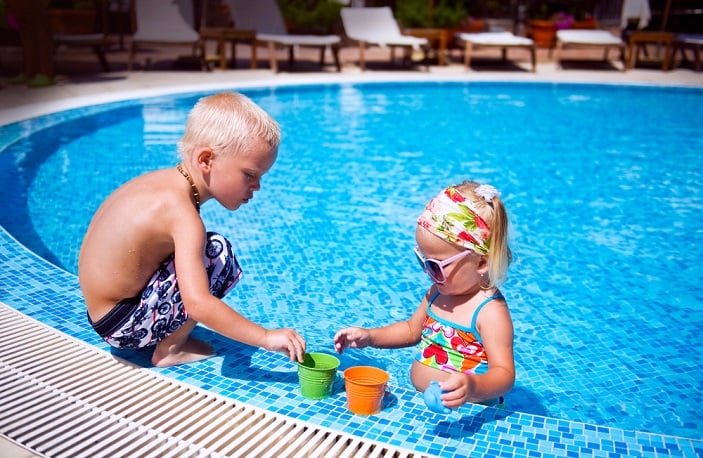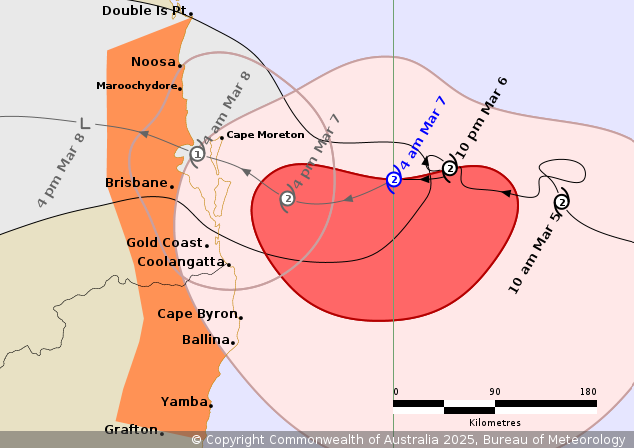
Tips for Buying or Selling a House with a Pool
Looking to buy or sell a home with a pool in Queensland? With the warm and sunny weather, it’s common for homeowners in the Sunshine State to have a swimming pool. However, it’s important to understand pool safety regulations and who is responsible for complying with them. In this article, we’ll provide you with essential information to help you navigate the process of buying or selling a home with a pool in Queensland.
The REIQ Contract
The standard REIQ contract for property sales in Queensland requires sellers to disclose whether there is a current Pool Safety Certificate for any non-shared pool on the property. If you’re selling a home with a pool, you must inform potential buyers whether or not the pool has a valid certificate.
If there is no current certificate and the seller does not provide one by settlement, the buyer can cancel the contract. However, if the seller provides a Form 36 Notice Of No Pool Safety Certificate to the buyer prior to signing the contract, the buyer cannot cancel the contract based on the absence of a certificate. If there is no certificate at settlement, the buyer is responsible for obtaining one within ninety days of the settlement date. Failure to comply with this legal requirement can result in serious penalties.
What is a Pool Safety Certificate?
A Pool Safety Certificate confirms that a pool conforms to pool safety laws. In Queensland, it’s mandatory for any property with a non-shared pool to have a valid certificate. The certificate is typically valid for two years for non-shared pools. To obtain a Pool Safety Certificate, a licensed pool safety inspector must inspect the pool and surrounding area to ensure it meets relevant safety standards. This includes checking the height and integrity of pool barriers, condition of gates and fences, and placement of warning signs. It’s important to note that even if a property has a valid Pool Safety Certificate, the pool barriers and fencing must be maintained and kept in good condition to ensure ongoing compliance with pool safety laws.
Buying a House with a Pool
If you’re considering buying a house with a pool in Queensland, there are several important factors to keep in mind.
Pool Safety Certificate
As mentioned earlier, if you’re buying a house with a pool, you need to ensure that there is a current Pool Safety Certificate for the pool. If there is no certificate at settlement, you will need to obtain one within ninety days.
Pool Maintenance
A pool requires regular maintenance to ensure it remains in good condition and complies with safety regulations. Before buying a property with a pool, it’s important to have it inspected by a licensed pool safety inspector. This will help you identify any potential issues or areas that need attention.
Insurance
It’s also important to ensure that your home insurance covers your pool. Speak to your insurance provider to make sure that your policy covers any potential risks associated with owning a pool, such as liability for accidents or injuries.
Pool Features
When buying a house with a pool, it’s important to consider the features of the pool. For example, does the pool have a fence or barrier that complies with safety regulations? Are there any additional features such as a spa or slide that may require additional maintenance or safety considerations?
Selling a House with a Pool
If you’re selling a house with a pool in Queensland, there are several important steps you can take to ensure a smooth transaction.
Obtain a Pool Safety Certificate
As the seller, it’s your responsibility to ensure that there is a current Pool Safety Certificate for any non-shared pool on your property before you put your house on the market. If you don’t have a valid certificate, you should arrange for an inspection by a licensed pool safety inspector. If the inspector finds that your pool meets the relevant safety standards, they will issue a certificate.
Disclose Information to Potential Buyers
Once you have a valid Pool Safety Certificate, you must disclose this information to potential buyers. The standard REIQ contract for the sale of property in Queensland requires you to disclose whether or not there is a current Pool Safety Certificate for any non-shared pool on your property. This means that you need to inform potential buyers about the existence of a valid certificate. If there is no certificate, you must provide a Form 36 Notice Of No Pool Safety Certificate to the buyer prior to signing the contract. If you have any questions speak to your expert legal representative.
Make Necessary Repairs and Upgrades
If the inspector identifies any issues during the inspection, you will need to make necessary repairs and upgrades to bring your pool into compliance with pool safety laws. This may include fixing faulty gates, increasing the height of fences, or removing objects that could be used to climb over pool barriers.
If you’re unsure about what needs to be done to comply with pool safety laws, you can consult a licensed pool safety inspector or contact your local council for advice.
What About Shared Pools?
If the pool on the property is a shared pool, then the seller is not required to obtain a Pool Safety Certificate. Instead, the buyer and seller must enter into a written agreement about pool safety. This agreement must be signed before the contract is finalized.
The agreement must state that the buyer will obtain a Pool Safety Certificate within 90 days of settlement. The buyer must also ensure that the pool remains compliant with pool safety laws for the duration of their ownership.
It’s worth noting that shared pools can include pools that are used by more than one household. For example, a strata-titled apartment complex might have a shared pool that is used by all residents.
The Importance Of Pool Safety Pool safety is an important issue in Queensland, where drowning is one of the leading causes of death for young children.
In 2018-2019, there were 15 drowning deaths in Queensland involving children under the age of five. In the same period, a further 45 children were hospitalized
due to near-drowning incidents. According to the Royal Life Saving Society, the majority of these incidents occurred in backyard swimming pools. This highlights the importance of ensuring that pools are safe and compliant with pool safety laws. By obtaining a Pool Safety Certificate and following pool safety guidelines, homeowners can help to prevent tragic accidents from occurring.
FAQs
Q: What happens if a seller fails to disclose that there is no Pool Safety Certificate?
A: If a seller fails to disclose that there is no Pool Safety Certificate, and no Form 36 Notice Of No Pool Safety Certificate is provided, the buyer may have grounds to rescind (terminate) the contract or seek compensation.
Q: How much does it cost to obtain a Pool Safety Certificate? A: The cost of obtaining a Pool Safety Certificate will vary depending on the pool and the inspector. However, you can expect to pay anywhere from $150-$300 for an inspection.
Q: What happens if a buyer fails to obtain a Pool Safety Certificate within 90 days of settlement? A: If a buyer fails to obtain a Pool Safety Certificate within 90 days of settlement, they may be fined up to $24,437.80. The pool may also be closed until a certificate is obtained.
Q: Do pool laws change from each state and territory?
A: Yes, pool laws can vary between different states and territories of Australia, including QLD and NSW. Each state or territory has its own set of regulations and requirements for the construction, maintenance, and safety of swimming pools and spas, which may include fencing, barriers, covers, and signage.
For example, in QLD, all new swimming pools and spas must comply with the Pool Safety Standard, which sets out specific requirements for fencing, gates, barriers, and other safety features. In addition, all pools and spas must be registered with the QBCC and inspected by a licensed pool safety inspector.
In NSW, the Swimming Pools Act 1992 and the Swimming Pools Regulation 2018 set out the legal requirements for swimming pool and spa safety, including the need for fencing and barriers that comply with the Australian Standards. Property owners are also required to register their pools and spas with the local council, and to have them inspected and certified by a qualified inspector.
Therefore, it is important for property owners to be aware of the specific pool laws and regulations that apply in their state or territory, to ensure compliance and safety for themselves and their guests.
If you’re buying or selling a house with a pool in Queensland in 2024, it’s important to ensure that you comply with pool safety laws. This means obtaining a Pool Safety Certificate, or entering into a written agreement about pool safety if the pool is a shared pool. By doing so,you can help to ensure that your pool is safe for your family and for others who may use it. Remember, pool safety is everyone’s responsibility, and taking the necessary precautions can help to prevent tragic accidents from occurring.
For more information you can also contact the QBCC.
This is general advice only, for specific legal advice please speak with your legal representative or Solicitor.




